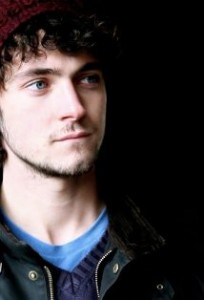"The book the reader has now before his eyes - from one end to the other, in its whole and in its details, whatever the omissions, the exceptions, or the faults - is the march from evil to good, from injustice to justice, from the false to the true, from night to day, from appetite to conscience, from rottenness to life, from brutality to duty, from Hell to Heaven, from nothingness to God. Starting point: matter; goal: the soul. Hydra at the beginning, angel at the end."
- Victor Hugo (V.1.xx)
Day Count: 148
Page Count: 1305
Had I stuck to my initial "ten-pages-a-day" plan that I started with at the beginning of the year, I'd have finished reading Les Miserables yesterday. As it stands, I managed to fall a bit behind with the stress of finishing out the school year and still have somewhere around 160 pages left between myself and the finale. My goal is to have the novel finished before mid-June, which seems a completely realistic goal.
The best part about being a teacher is having several weeks off in the summer, time I plan to use to get some reading done. After Les Miserables, I plan to take a one month hiatus from the works of Hugo (returning in July to read Notre-Dame-de-Paris a.k.a. The Hunchback of Notre Dame), during which time I'll likely tackle The Hunger Games series by Suzanne Collins (if for no other reason than to find out what all the fuss is about). No, it's not "great literature" and I will likely not be blogging or tweeting through my reading of those books, but - the way I figure it - when you finish a meal, you get dessert, something light, sweet, and not necessarily nutritious, as a capper for your meal. The way I see it, The Hunger Games is my slice of cheesecake after the multi-course dinner that was Les Miserables.
The quote I used to start this post is taken from the first book of Volume Five (the volume named after the chief protagonist of Les Miserables, Jean Valjean) in the midst of a discussion of the need for Progress. As soon as I read it, I recognized it as Hugo's statement of purpose, something akin to a thesis statement for his novel as a whole.
Renown more in France for his activism and poetry than his novels, Hugo spoke out against the debasement of the poor in Paris that occurred even in his lifetime. In fact, every character in the novel fits into the category (at one time or another throughout the narrative) as one of "The Wretched Poor," which, coincidentally, is one of the American translations of the title Les Miserables. Valjean was a convict; Javert, the son of two gypsy criminals; Fantine is forced into prostitution to care for her daughter; Cosette, that daughter grows up unloved and uncared for until meeting Valjean; the Thenardiers are greedy and deceptive, but live in abject poverty; Marius rejects his wealthy grandfather for the life of freedom, that is to say, the life of the impoverished. By making the poor characters that were both (a.) accurately poor (Hugo caught a lot of flack for allowing certain characters - i.e. Thenardier and his gang - to speak in argot, the language of the convict) and (b.) undeniably human, Hugo is able to open people's eyes - both then and now - to the realities of the life of the poor.
In fact, the only character in Les Miserables who was not at one time poor was the Bishop of Digne who, it will be remembered, stands out to my mind as one of the most ideally Christian characters I've ever encountered in literature. While the Bishop is a man of some means (by virtue of his position), he gives all that he has to those who fit the category of "The Wretched Poor." His house he gives to the neighboring hospital, the trappings of his parish he gives to a band of rebels, and - perhaps most famously - he gives his silverware and candlesticks to a former convict by the name of Jean Valjean. It seems clear - even from the beginning - that the Bishop of Digne is the 'ideal' to which the reader ought to desire to aspire, just as Jean Valjean does. The novel then depicts Valjean's ascent to that ideal - transforming "from evil to good." Would that we all were so motivated to aspire so highly.
At any rate, those are my thoughts for today. See you next time!




